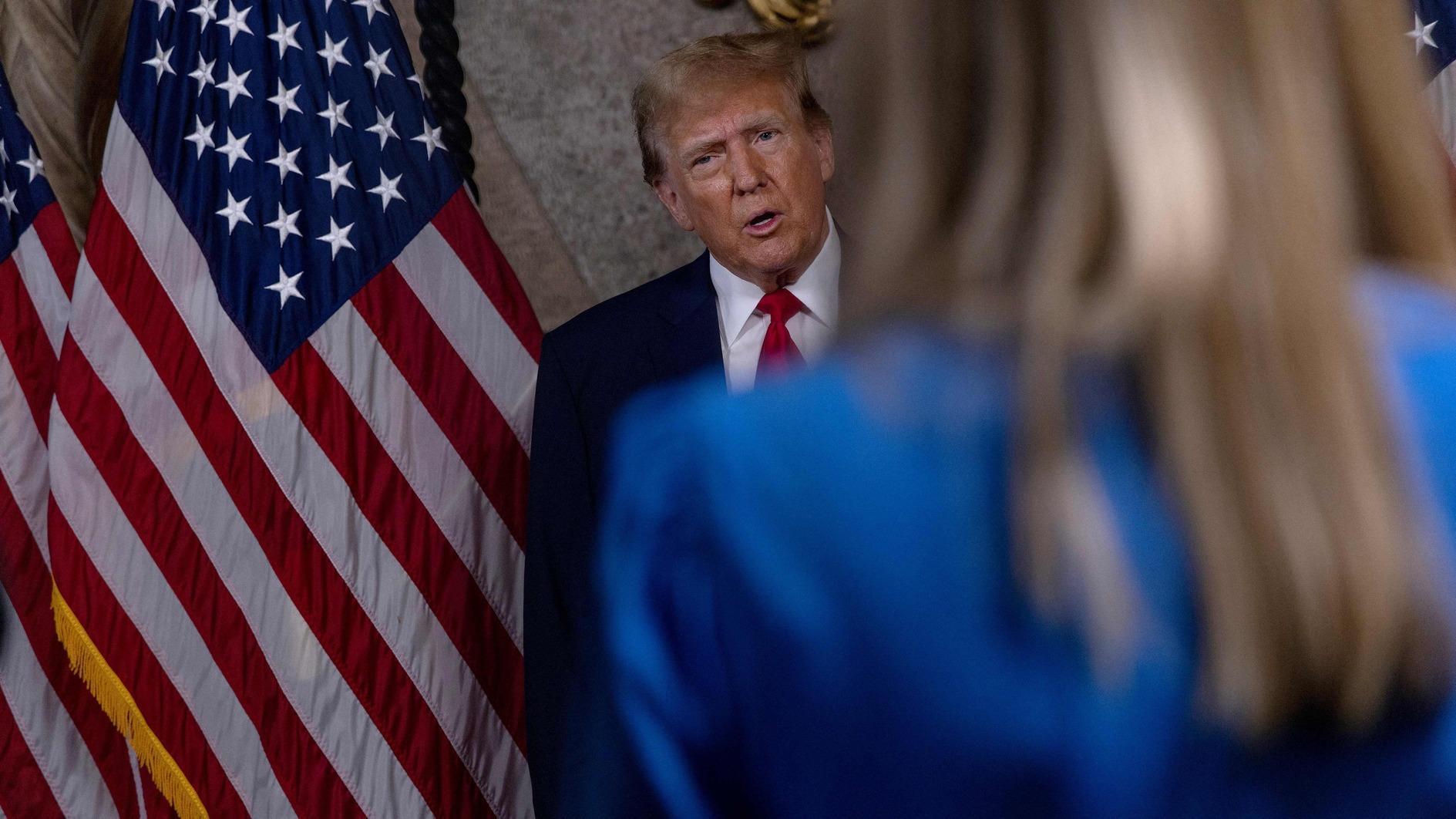US Supreme Court rules Trump can stay on Colorado primary ballot
WASHINGTON

The U.S. Supreme Court on Monday removed a potential hurdle to Donald Trump's bid to recapture the White House, unanimously dismissing a state court ruling that could have barred him from the ballot for engaging in insurrection.
The high-stakes ruling in favor of the former president came on the eve of the Super Tuesday primaries that are expected to cement Trump's march toward the Republican nomination to take on President Joe Biden in November.
It was the most consequential election case heard by the court since it halted the Florida vote recount in 2000 with Republican George W. Bush narrowly leading Democrat Al Gore.
The question before the nine justices was whether Trump was ineligible to appear on the Republican presidential primary ballot in Colorado because he engaged in an insurrection -- the January 6, 2021 assault on the U.S. Capitol by his supporters.
In a 9-0 decision, the conservative-dominated court said "the judgment of the Colorado Supreme Court... cannot stand," meaning 77-year-old Trump can appear on the state's primary ballot.
"All nine Members of the Court agree with that result," the ruling said, though one conservative and the three liberal justices dissented on certain technical aspects.
Trump hailed the decision, declaring a "BIG WIN FOR AMERICA!!!" in a post on his Truth Social website.
The case stemmed from a ruling in December by the supreme court of Colorado, one of the 15 states and territories voting on Super Tuesday.
The state court, citing the 14th Amendment to the U.S. Constitution, ruled that Trump should be kicked off the ballot because of his role in the January 6 attack on Congress, when a mob tried to halt certification of Biden's 2020 election victory.
Section 3 of the 14th Amendment bars those who engaged in "insurrection or rebellion" after once pledging to support and defend the Constitution from holding public office -- although Trump's lawyers argued the rule does not apply to the presidency.
During two hours of arguments last month, both conservative and liberal justices on the U.S. Supreme Court expressed concern about having individual states decide which candidates can be on the presidential ballot this November.
'Oath-breaking'
On Monday, the top court ruled that "responsibility for enforcing Section 3 against federal officeholders and candidates rests with Congress and not the States" -- and that the principle applied "especially (to) the Presidency."
The 14th Amendment, ratified in 1868 after the Civil War, was aimed at preventing supporters of the slave-holding breakaway Confederacy from being elected to Congress or from holding federal positions.
Monday's ruling renders other similar state challenges to Trump's primary ballot appearance effectively moot, including in Maine which also votes on Super Tuesday.
Maine Secretary of State Shenna Bellows said her state's barring of Trump from the ballot had been withdrawn, writing in a statement that the votes cast for Trump "will be counted."
Colorado Secretary of State Jena Griswold said she was "disappointed" in the outcome, posting on X that the state should be able to bar "oath-breaking" insurrectionists.
'Fair and square'
Speaking to reporters from his Mar-a-Lago resort in Florida, Trump alleged again without evidence that the legal maneuvering against him was "in total coordination with the White House."
His only remaining rival in the Republican primary, former South Carolina governor Nikki Haley, told CNN she was happy with the decision.
"Look, I'm trying to defeat Donald Trump fair and square. I don't need them taking him off the ballot to do it," she said.
The Supreme Court, which includes three justices nominated by Trump, has historically been loath to get involved in political questions, but it is taking center stage in this year's White House race.
Besides the Colorado case, the high court has also agreed to hear Trump's claim that he is immune from criminal prosecution as a former president and cannot be tried on separate charges of conspiring to overturn the 2020 election.
Trump was impeached by the Democratic-majority House of Representatives for inciting an insurrection but was acquitted thanks to Republican support in the Senate.
He is also scheduled to go on trial in New York on March 25 on charges of covering up hush money payments to a porn star ahead of the 2016 election.
In yet another case, Trump faces federal charges in Florida of refusing to give up top secret documents after leaving the White House.
















